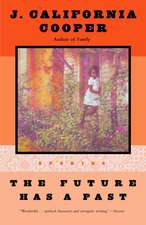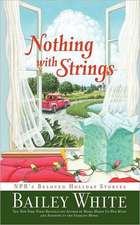The Tower, the Zoo, and the Tortoise
Autor Julia Stuarten Limba Engleză Paperback – 31 iul 2011
Balthazar Jones has lived and worked in the Tower of London for the past eight years. Being a Beefeater is no easy job, and when Balthazar is tasked with setting up an elaborate menagerie of the many exotic animals gifted to the Queen, life at the Tower gets all the more interesting. Penguins escape, giraffes go missing, and the Komodo dragon sends innocent tourists running for their lives. Still, that chaos is nothing compared to what happens when his wife, Hebe, makes a surprise announcement. What’s a Beefeater to do?
Preț: 112.52 lei
Nou
Puncte Express: 169
Preț estimativ în valută:
21.53€ • 22.40$ • 17.78£
21.53€ • 22.40$ • 17.78£
Carte disponibilă
Livrare economică 22 martie-05 aprilie
Preluare comenzi: 021 569.72.76
Specificații
ISBN-13: 9780307476913
ISBN-10: 030747691X
Pagini: 320
Dimensiuni: 134 x 202 x 20 mm
Greutate: 0.25 kg
Editura: Anchor Books
ISBN-10: 030747691X
Pagini: 320
Dimensiuni: 134 x 202 x 20 mm
Greutate: 0.25 kg
Editura: Anchor Books
Notă biografică
Julia Stuart is an award-winning journalist and the author of one previous novel, The Matchmaker of Périgord. She lives in London.
Extras
CHAPTER ONE
Standing on the battlements in his pajamas, Balthazar Jones looked out across the Thames where Henry III’s polar bear had once fished for salmon while tied to a rope. The Beefeater failed to notice the cold that pierced his dressing gown with deadly precision, or the wretched damp that crept round his ankles. Placing his frozen hands on the ancient parapet, he tilted back his head and inhaled the night. There it was again.
The undeniable aroma had fluttered past his capacious nostrils several hours earlier as he lay sleeping in the Tower of London, his home for the last eight years. Assuming such wonderment was an oasis in his usual gruesome dreams, he scratched at the hairs that covered his chest like freshly fallen ash and descended back into ragged slumber. It wasn’t until he rolled onto his side, away from his wife and her souk of competing odours, that he smelt it again. Recognising instantly the exquisite scent of the world’s rarest rainfall, the Beefeater sat bolt upright in the darkness, his eyes open wide like those of a baby bird.
The sudden movement of the mattress caused his wife to undulate for several seconds like a body drifting at sea, and she muttered something incomprehensible. As she turned away from the disturbance, her pillow fell into the gap between the head of the bed and the wall, one of the many irritations of living within circular walls. Balthazar Jones reached down into the dusty no-man’s-land and groped around. After carefully retrieving the pillow, he placed it gently next to his wife so as not to disturb her. As he did so, he wondered, as he often had throughout their marriage, how a woman of such beauty, the embers of which still glowed fiercely in her fifty-fifth year, could look just like her father as she slept. For once, he didn’t feel the urge to poke her awake in order to rid himself of the harrowing illusion of sharing his bed with his Greek father- in-law, a man whose ferocious looks had led his relatives to refer to him as a good cheese in a dog’s skin. Instead, he quickly got out of bed, his heart tight with anticipation. Forgetting his usual gazelle’s step at such times, he crossed the room, his bare heels thudding on the emaciated carpet. He peered out, nose and white beard against the pane, which bore the smudges of numerous previous occasions. The ground was still dry. With mounting desperation, he scanned the night sky for the approaching rain clouds responsible for the undeniable aroma. In his panic not to miss the moment for which he had been waiting for more than two years, he hurried past the vast stone fireplace to the other side of the bedroom. His stomach, still bilious from the previous evening’s hogget, arrived first.
Grabbing his dressing gown, its pockets bearing the guilty crumbs of clandestine biscuits, the Beefeater pulled it across his pajamas and, forgetting his tartan slippers, opened the bedroom door. He failed to notice the noise the latch made and the subsequent incomprehensible babble it produced from his wife, a slither of hair skimming her cheek. Fingers sliding down the filthy rope handrail, he descended the corpse- cold spiral stairs clutching in his free hand an Egyptian perfume bottle in which he hoped to capture some of the downfall. Once at the bottom of the steps, he passed his son’s bedroom, which he had never brought himself to enter since that terrible, terrible day. Slowly, he shut behind him the door of the Salt Tower, the couple’s quarters within the fortress, and congratulated himself on a successful exit. It was at that precise moment that his wife woke up. Hebe Jones ran a hand along the bed sheet that had been a wedding present all those years ago. But it failed to find her husband.
s balthazar jones had been collecting rain for almost three years, a compulsion that had started shortly after the death of his only child. At first he thought that rain was simply an infuriating part of the job, which, along with the damp from their abominable lodgings, produced in all the Beefeaters a ruthless specimen of fungus that flourished on the backs of their knees. But as the months grated by following the tragedy, he found himself staring at the clouds, frozen in a state of insurmountable grief when he should have been on the lookout for professional pickpockets. As he looked up at the sky, barely able to breathe for the weight of guilt that pressed against his chest, he started to notice a variety in the showers that would invariably soak him during the day. Before long he had identified sixty-four types of rain, all of which he jotted down in a Moleskine notebook he bought specially for the purpose. It wasn’t long before he purchased a bulk order of coloured Egyptian perfume bottles, chosen not so much for their beauty but for their ability to conserve their contents. In them he started to collect samples, recording the time, date, and precise variety of rain that had fallen. Much to the annoyance of his wife, he had a cabinet made for them, which he mounted with considerable difficulty on the living room’s curved wall. Before long it was full and he ordered two more, which she made him put in the room at the top of the Salt Tower, which she never entered because the chalk graffiti left on the walls by the German U-boat men imprisoned during the Second World War gave her the creeps.
When his collection had swollen to the satisfying figure of one hundred, the Beefeater promised his wife, who now detested wet weather even more than was natural for a Greek who couldn’t swim, he would stop. And for a while it seemed that Balthazar Jones was cured of his habit. But the truth was that England was going through an extraordinary dry patch, and as soon as the rain started to fall again, the Beefeater, who had already been reprimanded by the Chief Yeoman Warder for gazing up at the sky while he should have been answering the tourists’ tiresome questions, returned to his compulsion.
Hebe Jones satisfied herself with the thought that eventually her husband would complete his collection and be done with it. But her hopes evaporated when he was sitting on the edge of the bed one night and, after pulling off his damp left sock, revealed with the demented conviction of a man about to prove the existence of dragons that he had only touched the tip of the iceberg. It was then that he had some official writing paper printed with matching envelopes, and set up the St. Heribert of Cologne Club, named after the patron saint of rain, hoping to compare notes with fellow wet weather enthusiasts. He placed adverts in various newspapers around the world, but the only correspondence he ever received was a heavily watermarked letter from an anonymous resident of Mawsynram, in northeastern India, which suffered from one of the world’s heaviest rainfalls. “Mr Balthazar, You must desist from this utter madness at the most soonest. The only thing worse than a lunatic is a wet one” was all that it said.
But the lack of interest only fuelled his obsession. The Beefeater spent all his spare time writing to meteorologists around the world about his discoveries. He received replies from them all, his fingers, as lithe as a watchmaker’s, quiver- ing as he opened them. However, the experts’ politeness was matched by their disinterest. He changed tack and buried himself in dusty parchments and books at the British Library that were as fragile as his sanity. And with eyes magnified by the strength of his reading glasses, he scoured everything ever written about rain.
Eventually, Balthazar Jones discovered a variant that, from what he could make out, hadn’t fallen since 1892 in Colombo, making it the world’s rarest. He read and reread the descriptions of the sudden shower, which, through a catalogue of misfortunes, had resulted in the untimely death of a cow. He became adamant that he would recognise it from its scent even before seeing it. Every day he waited, hoping for it to fall. Obsession eventually loosened his tongue, and one afternoon he heard himself telling his wife of his desperate desire to include it in his collection. With a mixture of incredulity and pity, she gazed up at the man who had never shed a tear over the death of their son, Milo. And when she looked back down at the daffodil bulbs she was planting in a tub on the Salt Tower roof, she wondered yet again what had happened to her husband.
s standing with his back against the Salt Tower’s oak door, the Beefeater glanced around in the darkness to make sure that he wouldn’t be spotted by any of the other inhabitants of the fortress. The only movement came from a pair of flesh-coloured tights swinging on a washing line strung up on the roof of the Casemates. These ancient terraced cottages built against the fortress walls housed many of the thirty-five Beefeaters who lived with their families at the Tower. The rest, like Balthazar Jones, had had the misfortune of being allocated one of the monument’s twenty-one towers as their home or, worse still, a house on Tower Green, the site of seven beheadings, five of them women.
Balthazar Jones listened carefully. The only sound emerging through the darkness was a sentry marking his territory, his footfall as precise as a Swiss clock. He sniffed the night again and for a moment he doubted himself. He hesitated, cursing himself for being so foolish as to believe that the moment had finally come. He imagined his wife emitting an aviary of sounds as she dreamt, and decided to return to the warm familiarity of the bed. But just as he was about to retrace his steps, he smelt it again.
Heading for the battlements, he noticed to his relief that the lights were off at the Rack & Ruin, the Tower’s tavern that had been serving the tiny community for two hundred and twenty-seven uninterrupted years, despite a direct hit during the Second World War. He did well to check, for there were occasions when the more vociferous arguments between the Beefeaters took until the early hours to be buried. Not, of course, that they remained that way. For they would often be gleefully dug up again in front of the warring parties by those seeking further entertainment.
Standing on the battlements in his pajamas, Balthazar Jones looked out across the Thames where Henry III’s polar bear had once fished for salmon while tied to a rope. The Beefeater failed to notice the cold that pierced his dressing gown with deadly precision, or the wretched damp that crept round his ankles. Placing his frozen hands on the ancient parapet, he tilted back his head and inhaled the night. There it was again.
The undeniable aroma had fluttered past his capacious nostrils several hours earlier as he lay sleeping in the Tower of London, his home for the last eight years. Assuming such wonderment was an oasis in his usual gruesome dreams, he scratched at the hairs that covered his chest like freshly fallen ash and descended back into ragged slumber. It wasn’t until he rolled onto his side, away from his wife and her souk of competing odours, that he smelt it again. Recognising instantly the exquisite scent of the world’s rarest rainfall, the Beefeater sat bolt upright in the darkness, his eyes open wide like those of a baby bird.
The sudden movement of the mattress caused his wife to undulate for several seconds like a body drifting at sea, and she muttered something incomprehensible. As she turned away from the disturbance, her pillow fell into the gap between the head of the bed and the wall, one of the many irritations of living within circular walls. Balthazar Jones reached down into the dusty no-man’s-land and groped around. After carefully retrieving the pillow, he placed it gently next to his wife so as not to disturb her. As he did so, he wondered, as he often had throughout their marriage, how a woman of such beauty, the embers of which still glowed fiercely in her fifty-fifth year, could look just like her father as she slept. For once, he didn’t feel the urge to poke her awake in order to rid himself of the harrowing illusion of sharing his bed with his Greek father- in-law, a man whose ferocious looks had led his relatives to refer to him as a good cheese in a dog’s skin. Instead, he quickly got out of bed, his heart tight with anticipation. Forgetting his usual gazelle’s step at such times, he crossed the room, his bare heels thudding on the emaciated carpet. He peered out, nose and white beard against the pane, which bore the smudges of numerous previous occasions. The ground was still dry. With mounting desperation, he scanned the night sky for the approaching rain clouds responsible for the undeniable aroma. In his panic not to miss the moment for which he had been waiting for more than two years, he hurried past the vast stone fireplace to the other side of the bedroom. His stomach, still bilious from the previous evening’s hogget, arrived first.
Grabbing his dressing gown, its pockets bearing the guilty crumbs of clandestine biscuits, the Beefeater pulled it across his pajamas and, forgetting his tartan slippers, opened the bedroom door. He failed to notice the noise the latch made and the subsequent incomprehensible babble it produced from his wife, a slither of hair skimming her cheek. Fingers sliding down the filthy rope handrail, he descended the corpse- cold spiral stairs clutching in his free hand an Egyptian perfume bottle in which he hoped to capture some of the downfall. Once at the bottom of the steps, he passed his son’s bedroom, which he had never brought himself to enter since that terrible, terrible day. Slowly, he shut behind him the door of the Salt Tower, the couple’s quarters within the fortress, and congratulated himself on a successful exit. It was at that precise moment that his wife woke up. Hebe Jones ran a hand along the bed sheet that had been a wedding present all those years ago. But it failed to find her husband.
s balthazar jones had been collecting rain for almost three years, a compulsion that had started shortly after the death of his only child. At first he thought that rain was simply an infuriating part of the job, which, along with the damp from their abominable lodgings, produced in all the Beefeaters a ruthless specimen of fungus that flourished on the backs of their knees. But as the months grated by following the tragedy, he found himself staring at the clouds, frozen in a state of insurmountable grief when he should have been on the lookout for professional pickpockets. As he looked up at the sky, barely able to breathe for the weight of guilt that pressed against his chest, he started to notice a variety in the showers that would invariably soak him during the day. Before long he had identified sixty-four types of rain, all of which he jotted down in a Moleskine notebook he bought specially for the purpose. It wasn’t long before he purchased a bulk order of coloured Egyptian perfume bottles, chosen not so much for their beauty but for their ability to conserve their contents. In them he started to collect samples, recording the time, date, and precise variety of rain that had fallen. Much to the annoyance of his wife, he had a cabinet made for them, which he mounted with considerable difficulty on the living room’s curved wall. Before long it was full and he ordered two more, which she made him put in the room at the top of the Salt Tower, which she never entered because the chalk graffiti left on the walls by the German U-boat men imprisoned during the Second World War gave her the creeps.
When his collection had swollen to the satisfying figure of one hundred, the Beefeater promised his wife, who now detested wet weather even more than was natural for a Greek who couldn’t swim, he would stop. And for a while it seemed that Balthazar Jones was cured of his habit. But the truth was that England was going through an extraordinary dry patch, and as soon as the rain started to fall again, the Beefeater, who had already been reprimanded by the Chief Yeoman Warder for gazing up at the sky while he should have been answering the tourists’ tiresome questions, returned to his compulsion.
Hebe Jones satisfied herself with the thought that eventually her husband would complete his collection and be done with it. But her hopes evaporated when he was sitting on the edge of the bed one night and, after pulling off his damp left sock, revealed with the demented conviction of a man about to prove the existence of dragons that he had only touched the tip of the iceberg. It was then that he had some official writing paper printed with matching envelopes, and set up the St. Heribert of Cologne Club, named after the patron saint of rain, hoping to compare notes with fellow wet weather enthusiasts. He placed adverts in various newspapers around the world, but the only correspondence he ever received was a heavily watermarked letter from an anonymous resident of Mawsynram, in northeastern India, which suffered from one of the world’s heaviest rainfalls. “Mr Balthazar, You must desist from this utter madness at the most soonest. The only thing worse than a lunatic is a wet one” was all that it said.
But the lack of interest only fuelled his obsession. The Beefeater spent all his spare time writing to meteorologists around the world about his discoveries. He received replies from them all, his fingers, as lithe as a watchmaker’s, quiver- ing as he opened them. However, the experts’ politeness was matched by their disinterest. He changed tack and buried himself in dusty parchments and books at the British Library that were as fragile as his sanity. And with eyes magnified by the strength of his reading glasses, he scoured everything ever written about rain.
Eventually, Balthazar Jones discovered a variant that, from what he could make out, hadn’t fallen since 1892 in Colombo, making it the world’s rarest. He read and reread the descriptions of the sudden shower, which, through a catalogue of misfortunes, had resulted in the untimely death of a cow. He became adamant that he would recognise it from its scent even before seeing it. Every day he waited, hoping for it to fall. Obsession eventually loosened his tongue, and one afternoon he heard himself telling his wife of his desperate desire to include it in his collection. With a mixture of incredulity and pity, she gazed up at the man who had never shed a tear over the death of their son, Milo. And when she looked back down at the daffodil bulbs she was planting in a tub on the Salt Tower roof, she wondered yet again what had happened to her husband.
s standing with his back against the Salt Tower’s oak door, the Beefeater glanced around in the darkness to make sure that he wouldn’t be spotted by any of the other inhabitants of the fortress. The only movement came from a pair of flesh-coloured tights swinging on a washing line strung up on the roof of the Casemates. These ancient terraced cottages built against the fortress walls housed many of the thirty-five Beefeaters who lived with their families at the Tower. The rest, like Balthazar Jones, had had the misfortune of being allocated one of the monument’s twenty-one towers as their home or, worse still, a house on Tower Green, the site of seven beheadings, five of them women.
Balthazar Jones listened carefully. The only sound emerging through the darkness was a sentry marking his territory, his footfall as precise as a Swiss clock. He sniffed the night again and for a moment he doubted himself. He hesitated, cursing himself for being so foolish as to believe that the moment had finally come. He imagined his wife emitting an aviary of sounds as she dreamt, and decided to return to the warm familiarity of the bed. But just as he was about to retrace his steps, he smelt it again.
Heading for the battlements, he noticed to his relief that the lights were off at the Rack & Ruin, the Tower’s tavern that had been serving the tiny community for two hundred and twenty-seven uninterrupted years, despite a direct hit during the Second World War. He did well to check, for there were occasions when the more vociferous arguments between the Beefeaters took until the early hours to be buried. Not, of course, that they remained that way. For they would often be gleefully dug up again in front of the warring parties by those seeking further entertainment.
Recenzii
“[A] hilarious love story. . . . This book will steal your heart.” —People
“History buffs, animal lovers, and simply the tenderhearted will swoon over this captivating story. . . . Sweet and enchanting.” —Entertainment Weekly, Grade A
“Feather-light without being feather-brained. Julia Stuart has penned a work that is original and every-page amusing.” —The Denver Post
“A marvelous confection of a book.” —The Washington Times
“Delightfully zany and touching. . . . With her deft and charming style, Stuart brings this comic story to a satisfying and heartwarming end.” —The Washington Post
“Julia Stuart’s sweet The Tower, the Zoo, and the Tortoise is a blessing, undisguised and undeniable, and apparent from the first sentence. . . . [A] tale at once contemporary and timeless. . . . The Tower, of course, is known as the home of the Crown Jewels, and Stuart’s many-faceted little gem adds to its glitter.” —Richmond Times-Dispatch
“This is fine writing. . . . For [those] who could use a little whimsy and a rousing good yarn, turtle soup is on.” —The Plain Dealer
“Imagine a funny, poignant book, full of delightful and wacky characters, then add a bit of English history, and you’ve got The Tower, the Zoo, and the Tortoise. . . . This is Carl Hiaasen for the Tower of London.” —NPR, “Best Books of 2010”
“The Tower, the Zoo, and the Tortoise unfolds with an airy whimsy. . . . Great fun. . . . For all that [Stuart’s] setups are ingenious, she never loses sight of the humanity of her characters. . . . Both original and memorably enjoyable.” —The Denver Post
“Stuart’s tale is a comedy of realms—her Tower, her England—where people and things are out of place. . . . Sometimes it takes an escaped Komodo dragon for people to begin sorting out their lives.” —BookPage
“A charming spoof.” —The Washington Times
“Enjoyable and humorous. . . . Has a human genuineness to it that is touching and, at times, heartbreaking.” —The Gainesville Times
“[A] treat for Anglophiles.” —Pittsburgh Post-Gazette
“It’s the delicate balance of odd and normal that makes Stuart’s book irresistible.” —Sacramento Book Review
“Stuart’s attempt to combine current reality with the ghostly past is a brilliant premise. . . . Remarkably funny. . . . Stuart is obviously fascinated by the multiple histories that inhabit the tower, and her research flavours the novel well.” —The Globe and Mail (Toronto)
“An absolute delight.” —IndieLondon
“History buffs, animal lovers, and simply the tenderhearted will swoon over this captivating story. . . . Sweet and enchanting.” —Entertainment Weekly, Grade A
“Feather-light without being feather-brained. Julia Stuart has penned a work that is original and every-page amusing.” —The Denver Post
“A marvelous confection of a book.” —The Washington Times
“Delightfully zany and touching. . . . With her deft and charming style, Stuart brings this comic story to a satisfying and heartwarming end.” —The Washington Post
“Julia Stuart’s sweet The Tower, the Zoo, and the Tortoise is a blessing, undisguised and undeniable, and apparent from the first sentence. . . . [A] tale at once contemporary and timeless. . . . The Tower, of course, is known as the home of the Crown Jewels, and Stuart’s many-faceted little gem adds to its glitter.” —Richmond Times-Dispatch
“This is fine writing. . . . For [those] who could use a little whimsy and a rousing good yarn, turtle soup is on.” —The Plain Dealer
“Imagine a funny, poignant book, full of delightful and wacky characters, then add a bit of English history, and you’ve got The Tower, the Zoo, and the Tortoise. . . . This is Carl Hiaasen for the Tower of London.” —NPR, “Best Books of 2010”
“The Tower, the Zoo, and the Tortoise unfolds with an airy whimsy. . . . Great fun. . . . For all that [Stuart’s] setups are ingenious, she never loses sight of the humanity of her characters. . . . Both original and memorably enjoyable.” —The Denver Post
“Stuart’s tale is a comedy of realms—her Tower, her England—where people and things are out of place. . . . Sometimes it takes an escaped Komodo dragon for people to begin sorting out their lives.” —BookPage
“A charming spoof.” —The Washington Times
“Enjoyable and humorous. . . . Has a human genuineness to it that is touching and, at times, heartbreaking.” —The Gainesville Times
“[A] treat for Anglophiles.” —Pittsburgh Post-Gazette
“It’s the delicate balance of odd and normal that makes Stuart’s book irresistible.” —Sacramento Book Review
“Stuart’s attempt to combine current reality with the ghostly past is a brilliant premise. . . . Remarkably funny. . . . Stuart is obviously fascinated by the multiple histories that inhabit the tower, and her research flavours the novel well.” —The Globe and Mail (Toronto)
“An absolute delight.” —IndieLondon









